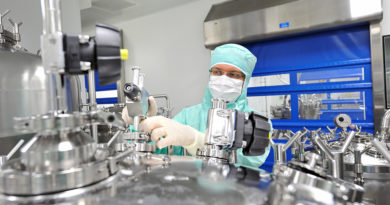
“Developing Leading Digital Societies”
Estonia has become one of the most innovative and technologically wired EU member states since its independence 25 years ago. The country is now commonly called “e-Estonia” thanks to its efficient digital public services, a start-up scene brimming with innovative ideas and a favourable business environment to enhance our citizens’ ambitions. What’s more, we invite everyone to become part of our e-revolution and apply for Estonian e-Residency.
Whether young or elderly, an entrepreneur or a citizen, living in a city or in the countryside – everybody in Estonia can enjoy the benefits and comforts of our e-society. We use mobile devices to park our car, we can set up a company online and it will be legally functional in 2-3 hours (record was 18 minutes). All our medical prescriptions are digital: no going to the pharmacy with a paper slip in hand anymore and our doctors have access to nation-wide electronic medical records.
Whatever there is to sign, we do it electronically with our digital ID – whether you are a citizen submitting an application to a government agency, an entrepreneur signing contracts or Prime Minister sending a bill to the parliament. We declare our taxes online (96% of people), we do our banking almost solely online and we are the only country in the world to have simple and secureinternet-based voting in national and local elections.
Getting things done digitally
Less hassle means time better spent, therefore developing a digital society has been one of key governmental policies in Estonia. The main success factor has been enabling a technical and legal foundation: from digital ID to data exchange set-up to privacy safeguards and cyber defence. Estonia is the only country to connect all public databases over the internet. For example, a citizen can automatically access his medical data stored by different service providers (e.g. hospitals) and by different doctors. Estonian digital society is built upon a principle that people own their personal data and it can be exchanged only with their consent or a legally defined „need to know“. With these and other practical safeguarding principles, people do trust the government more with their data.
Estonia is the first country to offer e-residency, a transnational digital identity that allows digital signatures and the creation and operation of location-independent businesses online. Since 2014, people from 138 different countries have applied for e-residency and today we have more than 20 000 e-Residents.
We’re used to getting things done quickly.
Our legislation is transparent and supportive of business. We have one of the most competitive and investment-friendly taxation systems in Europe. If you wish to become a part of our
e-success story and enjoy the same benefits as Estonians do, then there is no easier way than becoming an e-Resident of Estonia.
Estonia has also worked hard to create a world-class competence in cybersecurity. It is now the home of NATO Cooperative Cyber Defence Centre of Excellence and European Union’s Agency for Large Scale IT-systems in internal security area. Additionally, Estonia is leading the way towards creating the first ever data embassy in Luxembourg – this means keeping a complete backup of the information vital to the functioning of the state safe in the servers of other EU member states. In close partnership with these as well as other international allies we strive to make digital life more secure every day. Cybersecurity has become an
essential feature of our digital ecosystem and going back offline is not an option for us.
Estonia’s EU presidency has a highly digital agenda
From July to December 2017, Estonia will have the honour to steer the wheel of European Union as the presidency country for the Council of the EU. Given our practical experience and strong belief in digital development, digital topics will naturally be a priority for our presidency. In the core of Estonia’s digital agenda for Europe will be making progress on Digital Single Market (DSM) by removing any obstacles and advancing the enablers for a unified market. Estonia will do its best to help the Council meet deadlines of concluding negotiations on all files in the DSM strategy, including the various files on e-commerce, Electronic Communications Code, e-Privacy, and more. Altogether, more than 50 different digital events and conferences will take place in Estonia to discuss and agree on practical steps to make the DSM work.
DSM cannot be built without a special emphasis on the free movement of data amongst Member States. Estonia does consider it as the fifth freedom of EU, as data has become so crucial for the whole Single Market to function efficiently. The more business is digital, the more freeing up the data flows is necessary to avoid barriers to effective movement of people, capital, goods, services.
The outcome would be stronger Single Market and stronger Europe overall. Estonia is glad to have a chance to bring our 20 years of national digital experience to the table as EU presidency this year to make a move in this direction.




